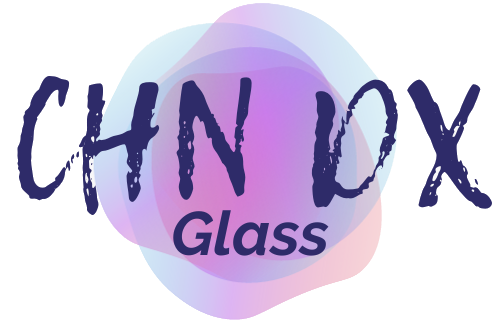In the dynamic landscape of education, Custom ELearning Development has emerged as a transformative force, reshaping how individuals learn and organizations train their workforce. This article delves into the intricacies of custom eLearning, exploring its benefits, key features, development process, and its impact on various sectors.
Benefits of Custom ELearning Development
Tailored Learning Experience
Custom elearning offers a tailored approach to learning, catering to individual needs and learning styles. Unlike generic solutions, custom elearning ensures that the content is relevant, engaging, and aligned with the specific goals of the learner.
Cost-Effectiveness
While initial investment may seem daunting, custom elearning proves cost-effective in the long run. The ability to update and modify content without significant expenses, coupled with the elimination of traditional training costs, makes it a financially savvy choice.
Scalability
Custom elearning solutions grow with your organization. Whether you’re onboarding new employees or expanding your educational initiatives, the scalability of custom elearning ensures that the learning environment evolves alongside your needs.
Key Features of Custom Elearning Solutions
Interactive Content
Engagement is a cornerstone of effective learning. Custom elearning incorporates interactive elements, such as quizzes, simulations, and multimedia content, fostering a dynamic learning experience that resonates with the modern learner.
Personalized Assessments
Assessment tools in custom elearning are tailored to evaluate individual progress. This not only provides immediate feedback to learners but also allows for the customization of subsequent learning paths based on performance.
Gamification Elements
Gamification adds an element of fun and competition to learning. Custom elearning often integrates gamified elements like badges, leaderboards, and rewards, enhancing motivation and participation.
Steps in Custom Elearning Development
Needs Assessment
Understanding the unique requirements of learners is the first step in custom elearning development. A thorough needs assessment helps identify learning objectives, preferred learning styles, and potential challenges, laying the foundation for a customized solution.
Content Design
Once needs are identified, the content is designed to align with the learning objectives. Custom elearning content goes beyond standard textbooks, utilizing multimedia, interactive scenarios, and real-world examples to enhance comprehension and retention.
Development and Testing
The development phase brings the designed content to life. Rigorous testing ensures that the custom elearning solution functions seamlessly, identifying and rectifying any technical glitches or inconsistencies before deployment.
Case Studies: Successful Custom Elearning Implementation

Company X: Transforming Employee Training
Company X witnessed a remarkable transformation in employee training after implementing custom elearning. Employee engagement increased, and the company reported significant improvements in retention rates and overall job performance.
School Y: Enhancing Student Engagement
School Y embraced custom elearning to enhance student engagement. The incorporation of interactive lessons and gamified assessments resulted in a more dynamic learning environment, capturing the interest of students and improving academic outcomes.
Trends in Custom Elearning Development
Artificial Intelligence Integration
The integration of artificial intelligence (AI) in custom elearning is a growing trend. AI-driven personalization, adaptive learning paths, and intelligent analytics further elevate the effectiveness of custom elearning solutions.
Mobile-First Approach
With the ubiquity of mobile devices, a mobile-first approach is becoming the norm in custom Elearning development. Responsive design and mobile-friendly content ensure that learners can access educational materials anytime, anywhere.
Trends in Custom Elearning Development
Introduction to Custom Elearning Development
In today’s fast-paced world, traditional learning methods are evolving rapidly, and one of the forefront trends is custom eLearning development. Custom eLearning refers to tailored online learning experiences designed to meet specific educational needs. Its importance has grown significantly in the modern learning landscape, where personalization and engagement are key factors in effective learning.
Evolution of Elearning Trends
The shift from traditional eLearning to custom solutions signifies a broader evolution in educational approaches. Traditional eLearning often followed a one-size-fits-all model, lacking the adaptability required for diverse learners. Custom eLearning, on the other hand, embraces technology to create dynamic and personalized learning experiences.
Personalization in Learning
One of the defining features of custom eLearning is personalization. Tailoring content to individual needs ensures that learners receive information in a way that suits their learning style. Adaptive learning platforms take personalization a step further by dynamically adjusting the difficulty of content based on individual progress.
Interactive Learning Experiences
To enhance engagement, custom eLearning incorporates interactive elements. Gamification techniques, such as point systems and competition, make learning enjoyable. Additionally, the integration of virtual reality (VR) and augmented reality (AR) provides immersive experiences, making complex concepts more tangible.
Mobile Learning Solutions

In an era where people are constantly on the move, custom eLearning prioritizes mobile learning solutions. Responsive design ensures that eLearning modules are accessible on various devices, while dedicated mobile apps allow users to learn anytime, anywhere.
Microlearning Approaches
Breaking down learning content into bite-sized modules characterizes microlearning. This approach is gaining popularity as it caters to shorter attention spans and allows learners to focus on specific skills. Microlearning is particularly effective for skill enhancement in various professional fields.
Data-Driven Decision Making
Analytics play a crucial role in custom eLearning development. Tracking user interactions and performance metrics provides valuable insights for educators and administrators. Data-driven decision-making ensures that learning strategies are effective and continuously improved.
Collaborative Learning Environments
Custom eLearning encourages collaboration through social learning platforms. Group projects and discussions foster a sense of community among learners, creating an environment where knowledge is shared and collective problem-solving is encouraged.
Incorporating Multimedia Elements
To cater to diverse learning styles, custom eLearning incorporates multimedia elements. Video integration, infographics, and interactive media make learning more engaging and effective.
Challenges in Custom Elearning Development
While custom eLearning brings many benefits, it also presents challenges. Striking the right balance between customization and standardization is crucial. Additionally, overcoming technical barriers, such as compatibility issues and infrastructure limitations, is a constant concern.
Future Trends and Innovations
Looking ahead, artificial intelligence (AI) is expected to play a significant role in custom eLearning. AI can personalize learning paths, recommend relevant content, and automate administrative tasks. Blockchain technology is also emerging as a secure solution for maintaining learning records.
Case Studies in Custom Elearning Success
Examining successful implementations of custom eLearning provides valuable insights. Real-world examples showcase how organizations have tailored learning experiences to meet specific goals, resulting in improved outcomes for learners.
Industry-Specific Custom Elearning Solutions
Custom eLearning is versatile and finds applications across various industries. Healthcare, corporate, and academic sectors benefit from tailored solutions that address their unique challenges and objectives.
Ensuring Accessibility and Inclusivity
Designing custom eLearning also requires a focus on accessibility and inclusivity. Ensuring that learning materials are accessible to individuals with diverse needs and complying with accessibility standards is essential for creating an inclusive learning environment.
Conclusion
In summary, the trends in custom eLearning development reflect a dynamic shift towards personalized, interactive, and technology-driven learning experiences. As we continue to explore innovative approaches, the future of eLearning holds promises of artificial intelligence, block chain, and even more tailored solutions for diverse industries.

